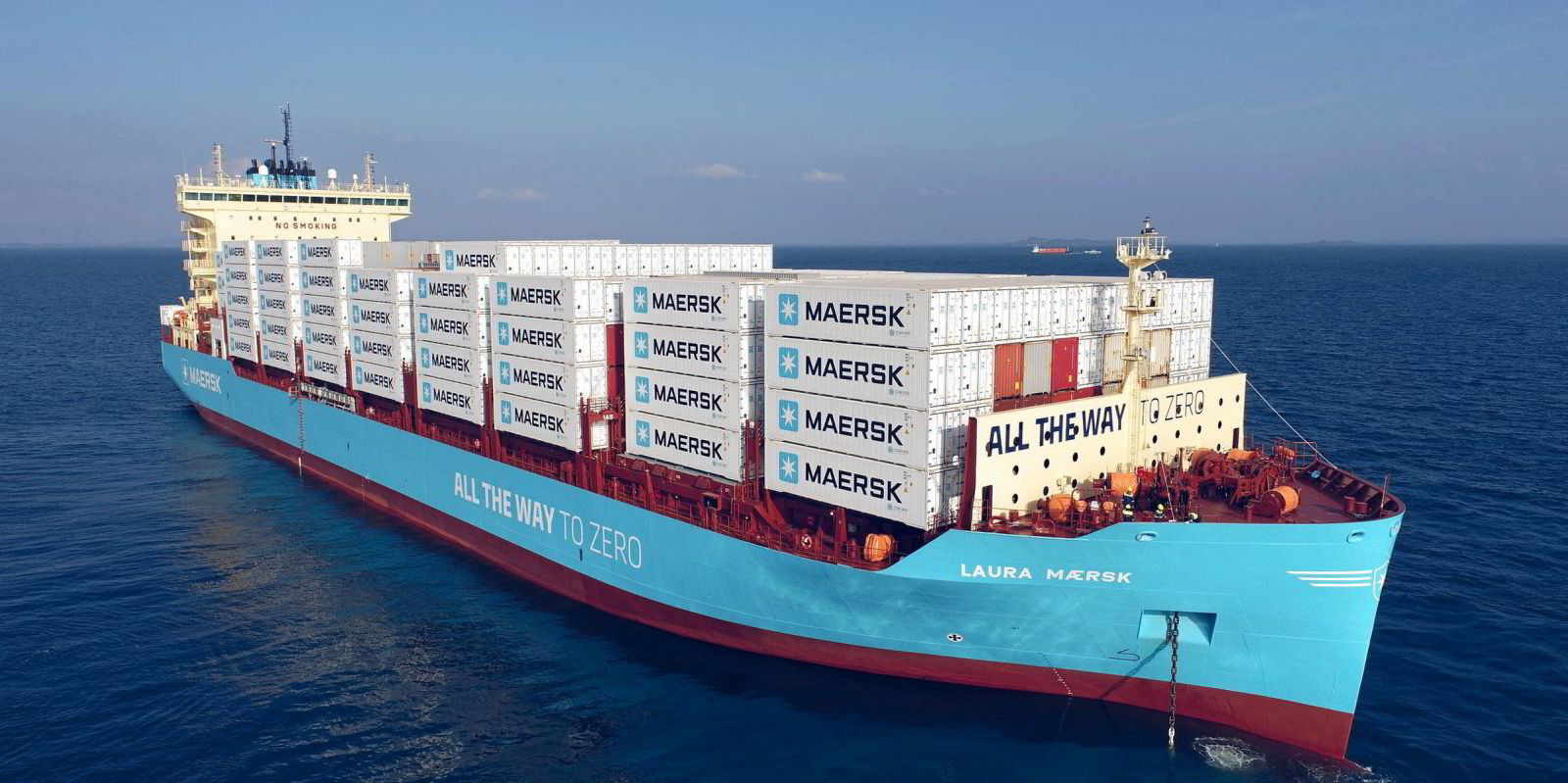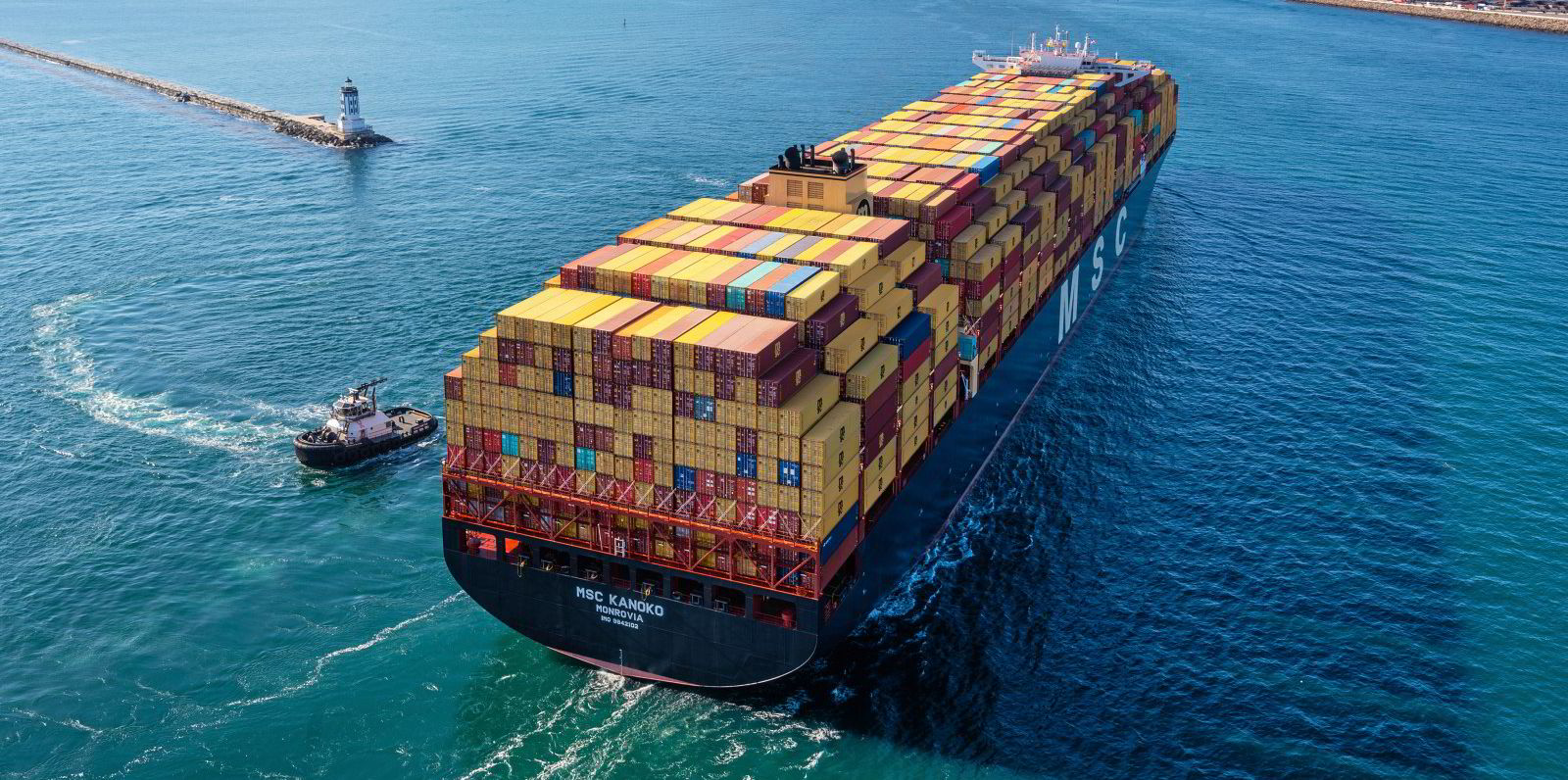AP Moller-Maersk believes its new Gemini Cooperation will be anything but a traditional liner alliance.
The Danish heavyweight announced a fresh accord with German carrier Hapag-Lloyd yesterday in a move which shakes up the liner shipping landscape.
The new operational agreement was necessary for the Danish carrier to meet the high targets set on schedule reliability, said Johan Sigsgaard, executive vice president and chief product officer for Maersk.
Those goals would not have been served in a traditional alliance, he explained.
“Entering into a traditional alliance will not serve the purpose of the goals that we have put forward,” Sisgaard told a press briefing.
The comments come a year after Maersk announced plans to dissolve the agreement with 2M Alliance partner MSC Mediterranean Shipping Company in January 2025.
The Danish company revealed yesterday that it would replace that with the Gemini operational agreement to create a new service network with the German liner partner.
The new alliance will have a pool of 290 ships with a combined capacity of 3.4m teu. Maersk will deploy 60% of the capacity and Hapag-Lloyd 40%, the companies said.
“There’s a big difference on this set-up compared with what we exited in 2M,” Sigsgaard said.
Big difference
Maersk found over the past 12 months that it needed a different solution to pursue an ambitious strategy.
“We simply didn’t have the control in the design and execution to get to the reliability level we needed for our customers,” Sigsgaard said.
The company found that broad cooperation with Hapag was the best way to achieve some of its goals.
It would enable the company to create a network with stronger connections to inland operations.
“Where this is different is on the commitment to quality,” Sisgaard said.

Simulations have shown that it is possible to create a network that can deliver 90% schedule reliability.
“This is a breakthrough because typically has been hovering around 70%,” he said.
The Gemini partners will institute several changes to achieve that, including fewer port calls.
“We can see very clearly that the more calls you have on a loop the less reliability you have,” he said.
The two partners in Gemini would also instigate a contractual commitment to quality.
“In a typical alliance contract, there are ambitions stated, but if I don’t fulfil my part of it there are no consequences” he said.
“What we have implemented this time is an agreement that has contractual and financial consequences.”
Pain point
“We are very certain reliability is a very strong pain point for customers,” he said.
It remained to be seen whether shippers would pay for the improved service.
“This is more a commercial discussion than the operational agreement.”
“But we are very, very certain that this addresses a real pain point of our customers.”
The challenge was to establish a network that would be robust enough to deal with port strikes and other forms of disruption.
That would result in drastically improving transit times and improved connectivity, he said.
“That’s why we want to break away from the traditional design.”
Sisgaard concluded that the formation of Gemini cooperation was possible because the two carriers had similar outlooks.
“To get to an initiative like this, it is important to get to a cultural match, where we don’t just believe in the same outcomes, but we also have a similar way of working to get into such close partnership,” he said.







